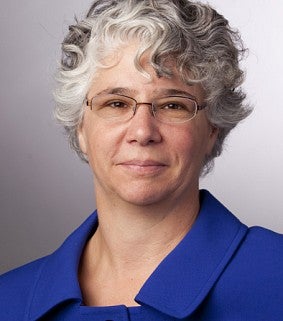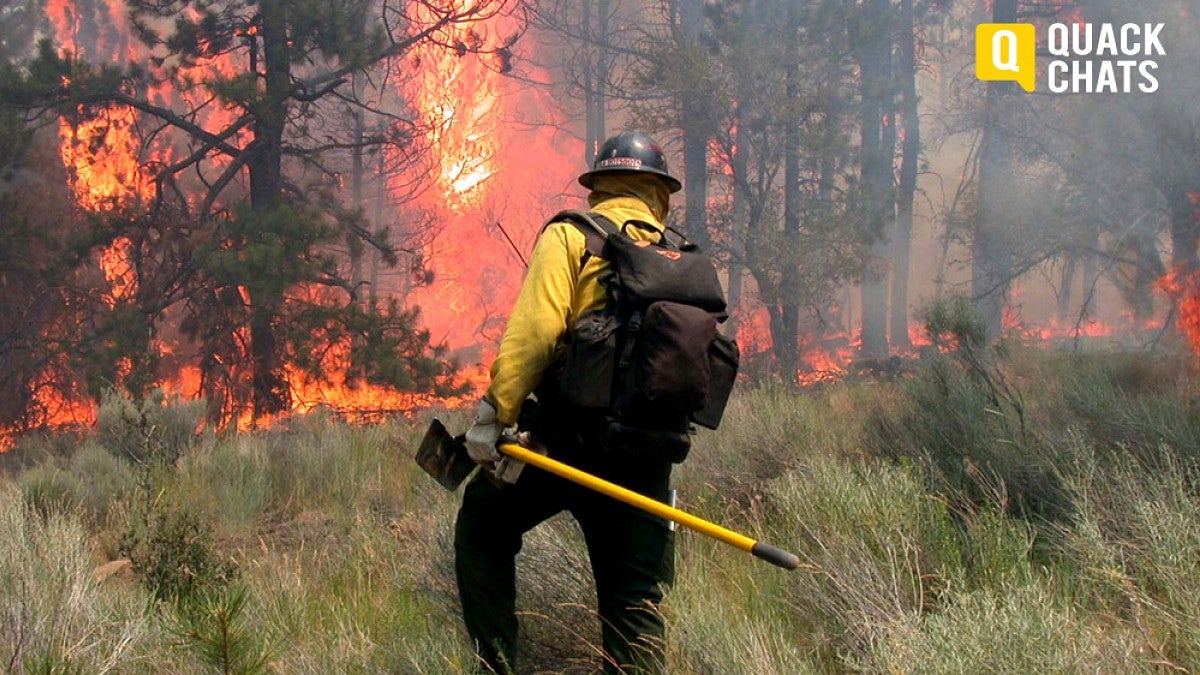During the summer of 2017, the skies around Eugene faded to a dull orange color, local residents stayed inside to avoid the smoke from nearby blazes and the subject of wildfires took on added importance.
“Fire became this thing that Western Oregonians were suddenly paying attention to,” said Cassandra Moseley, a research professor in the Institute for a Sustainable Environment and the UO’s senior associate vice president for research and innovation. “But fire has been a natural part of the Western U.S. for a long time. Even though as we are surrounded by more and more smoke, scientists tell us that there is actually a ‘fire deficit,’ given current climatic and forest conditions. There is even more fire to come.”

In her talk, “The Paradox of Wildfire,” Moseley will take a closer look at what is driving increased wildfire, how fires are fought and how some communities are “learning to live with fire.” She will include her own research examining some of the economic impacts of wildfire suppression efforts on rural communities and look at the increasingly complex challenges of controlling fires, which are being driven by climate trends and more people living in fire-prone landscapes at the wildland-urban interface.
In a timely essay in The Conversation, Moseley tackled many of these issues, including the fact that fire suppression efforts leave fewer resources for national forest management, research and development, and support for state and private forestry.
“People see large fires like what is happening in Redding right now and ask, ‘What are we going to do to prevent this from happening again?’” Moseley said. “But often the solutions that we come up with won’t prevent those types of fires.”
Moseley will take a closer look at some of the potential solutions, including the role local collaborative groups play in preparing communities and landscapes for future fires.
For information about Quack Chats and to sign up for advance notification emails, see the Quack Chats website, where visitors can also find a calendar of additional Quack Chats and associated public events. To learn more about upcoming Quack Chats, see the Quack Chats section on Around the O.
—By Lewis Taylor, University Communications


